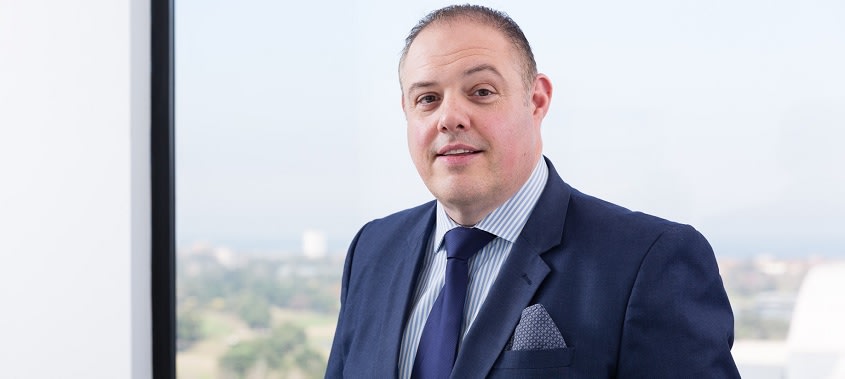
Small businesses will be “front and centre” in the federal budget, but will this deliver what they really need? Fifo Capital’s Wayne Morris considers what SMEs require.
As the federal budget approaches, Treasurer Jim Chalmers has emphasised that small businesses will be “front and centre”, asserting they are integral to the Albanese government’s strategy for creating a stronger, sustainable, and more resilient economy.
This focus on small businesses is a timely response to what the Productivity Commission has called the “productivity predicament”. Australia’s persistent productivity slowdown threatens to hinder future generations of Aussies from experiencing the same quality-of-life improvements as their predecessors.
By nurturing small businesses — which are inherently driven to innovate and enhance efficiency while fostering competition — the government can effectively address this productivity challenge.
However, it remains to be seen whether the measures announced in the budget will effectively revitalise small businesses and unlock their potential.
The Small Business Energy Incentive, the only policy announced thus far, may not significantly impact the situation, at least not on its own. It will provide a tax deduction for small businesses to support their electrification and energy efficiency investments. Eligible businesses with an annual turnover of less than $50 million can receive an additional 20 per cent deduction on spending up to $100,000, with the maximum bonus tax deduction being $20,000 per business.
While the Energy Incentive is positive for businesses heavily reliant on equipment that can be electrified, many small businesses are either already electrified or do not operate machinery. For those businesses that are highly dependent on machinery, the maximum deduction of $20,000 per business might not provide enough support for more extensive or costly upgrades.
The more fundamental issue, however, is that the incentive does not address several critical limitations that are hindering small businesses’ success in Australia today. These well-documented challenges include access to capital, workforce issues, and difficulties navigating complex regulations.
To uphold his government’s commitment, Jim Chalmers needs to go much further than this in his budget speech to address these concerns comprehensively.
Many of the challenges hindering small-business success require legislative reforms that are outside the scope of the budget. However, within the budget’s scope of policy and public expenditure, there are several changes that can achieve an impact.
Here are some ideas:
Develop onshore supply chains
First, to reduce Australia’s reliance on overseas suppliers, the federal budget should include measures to drive the development of onshore supply chains.
The COVID-19 pandemic exposed vulnerabilities in global supply chains, making it imperative for Australia to establish a robust and self-reliant system. This can be achieved by providing financial incentives, such as tax breaks or grants, for businesses that prioritise local suppliers (many of which will inevitably be small businesses), invest in domestic manufacturing capabilities, and promote sustainable practices.
Incentivise big businesses to work with local SMEs
Secondly, the Labor government should resist the temptation to antagonise large corporations for the sake of headlines, claiming to be acting in the interests of small businesses.
Instead, Mr Chalmers should use his budget speech to announce incentives for large companies to do business with smaller, local suppliers. The budget can also allocate funds for programs that encourage large companies to mentor, invest in, or partner with small businesses.
Not only would such an approach give a much-needed boost to small businesses, but it will also have the positive economic effect of creating more resilient local supply chains as well as encouraging onshore entrepreneurship that develops innovative solutions to our most pressing local challenges.
Extend support for R&D activities
Another way to boost innovation — and a third idea for Mr Chalmers’ budget — would be to extend tax incentives and funding for R&D activities as well as establish innovation hubs that provide small businesses with resources and mentorship. This will not only improve Australia’s domestic capabilities but also increase the nation’s ability to export innovative products and services.
Work with industry to identify opportunities
Finally, the government could bolster small businesses by uniting the country’s myriad trade associations and industry groups to identify collaboration opportunities.
The federal budget should allocate resources to facilitate these meetings and provide the necessary support, ensuring that the resulting partnerships succeed. This collaborative approach could lead to sharing best practices, resources, and expertise, improving the overall competitiveness of Aussie small businesses.
None of these measures would be extraordinarily expensive nor would they be politically controversial. Of course, there will be those who call for the overall lowering of taxes for businesses under a given turnover cap. However, it is unlikely that the new government would go so far, especially given the extreme pressure to increase spending on welfare measures like the Jobseeker Allowance.
This Tuesday (9 May), millions of small businesses across Australia eagerly await Mr Chalmers’ announcement of targeted, impactful measures to support them.
We should all hope for a strong commitment from the government to restoring small businesses’ place in the engine room driving Australia’s economy and a recognition of their vital role in fostering the innovation and productivity that has earned the nation its reputation as the “lucky country”.
Wayne Morris is chief executive of Fifo Capital, a leading finance provider for small businesses.
He is passionate about sustainable finance models that promote the operational success of businesses and empower them with tailored solutions aligned with their growth strategies.
Believing that Australia was built on the efforts of mavericks and entrepreneurs running mostly small businesses, Wayne’s vision is a more equitable and sustainable Australian business landscape, which sees small businesses once again take their place as the driving force behind the economy.
